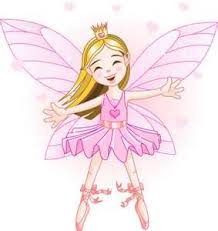记忆方法
1. fairy => faery, faerie.
中文词源
fairy 仙女,仙子,兔子(男同性恋者)
来自PIE*bha, 说,预测,词源同fable, fate. -ry, 地名后缀。原指有预测能力的仙子或精灵所在之地,后泛指仙子。用于俚语男同性恋。
英语词源
- fairy
-
fairy: [14] Fairy is an Old French coinage. It comes from Old French faerie, which meant ‘enchantment, magic’ and was derived from fae ‘fairy’ (source of English fay [14]). This in turn came from the Latin plural fāta, used in personifying the Fates, three goddesses who in ancient mythology governed human destiny. The original notion of the French noun survives in the mock-medieval term faerie (introduced by Edmund Spenser in his Faerie Queene 1590), but in fairy itself it has been gradually replaced by the meaning of the word from which it was originally derived – fay.
=> fable, fame, fate - fairy (n.)
- c. 1300, fairie, "the country or home of supernatural or legendary creatures; fairyland," also "something incredible or fictitious," from Old French faerie "land of fairies, meeting of fairies; enchantment, magic, witchcraft, sorcery" (12c.), from fae "fay," from Latin fata "the Fates," plural of fatum "that which is ordained; destiny, fate," from PIE *bha- "to speak" (see fame (n.)). Also compare fate (n.), also fay.
In ordinary use an elf differs from a fairy only in generally seeming young, and being more often mischievous. [Century Dictionary]
But that was before Tolkien. As a type of supernatural being from late 14c. [contra Tolkien; for example "This maketh that ther been no fairyes" in "Wife of Bath's Tale"], perhaps via intermediate forms such as fairie knight "supernatural or legendary knight" (c. 1300), as in Spenser, where faeries are heroic and human-sized. As a name for the diminutive winged beings in children's stories from early 17c.Yet I suspect that this flower-and-butterfly minuteness was also a product of "rationalization," which transformed the glamour of Elfland into mere finesse, and invisibility into a fragility that could hide in a cowslip or shrink behind a blade of grass. It seems to become fashionable soon after the great voyages had begun to make the world seem too narrow to hold both men and elves; when the magic land of Hy Breasail in the West had become the mere Brazils, the land of red-dye-wood. [J.R.R. Tolkien, "On Fairy-Stories," 1947]
Hence, figurative adjective use in reference to lightness, fineness, delicacy. Slang meaning "effeminate male homosexual" is recorded by 1895. Fairy ring, of certain fungi in grass fields (as we would explain it now), is from 1590s. Fairy godmother attested from 1820. Fossil Cretaceous sea urchins found on the English downlands were called fairy loaves, and a book from 1787 reports that "country people" in England called the stones of the old Roman roads fairy pavements.
权威例句
- 1. The story ascends from a gothic tragedy to a miraculous fairy-tale.
- 故事从一个哥特式悲剧升华为神奇的童话。
- 2. She was like a princess in a fairy tale.
- 她就像童话里的公主。
- 3. Fairy tales weren't just meant for children.
- 童话故事不仅仅是写给孩子们的。
- 4. Now tell me the truth: I don't want any more of your fairy stories.
- 现在跟我说实话:我不想再听你胡编乱诌了。
- 5. a fairy-tale castle on an island
- 岛上的一座神奇城堡

